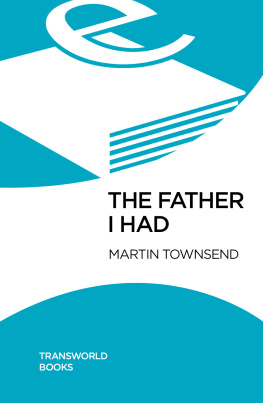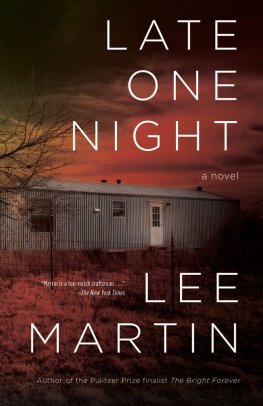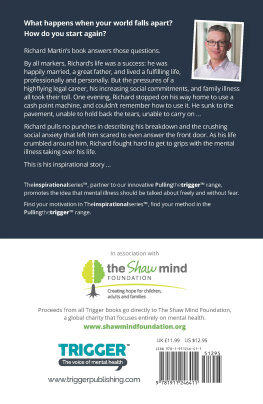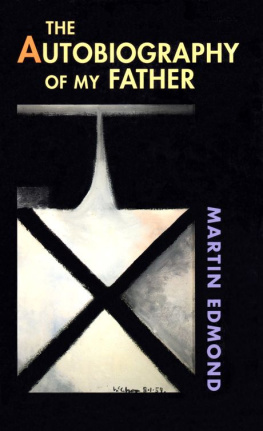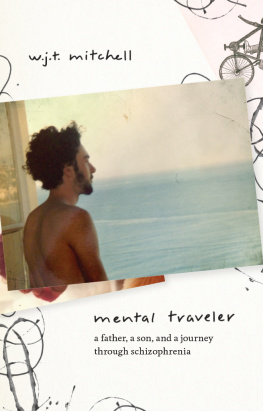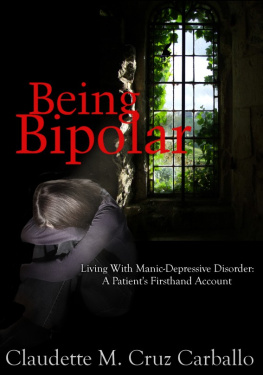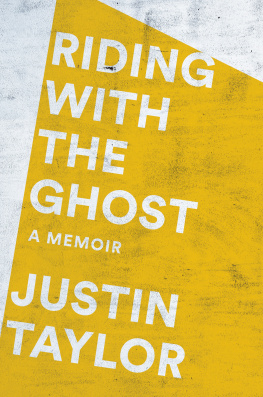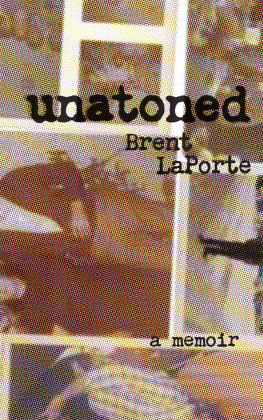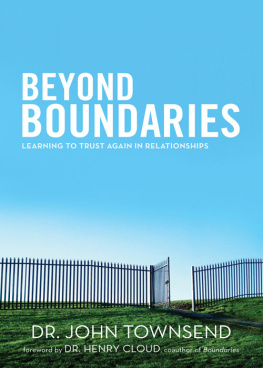About the Book
Martin Townsend grew up with a father, Ron, who had suffered from bipolar depression since the early 1950s. At the slightest emotional trigger Ron could turn from a loving and compassionate dad to a dead eyed depressive or a bullying monster. One minute hed be building his sons a playhouse, the next terrorizing the family. The illness was an unwanted outsider in their family that could spoil the rhythm of normal life and leave Ron in a cycle of unending loneliness and confusion.
Yet despite his often erratic behaviour, Ron was a larger than life and much loved character. In The Father I Had, Martin Townsend paints an intimate, tender and often painful portrait of life with his Dad, a man who he loved unconditionally but who would turn on him whenever the illness took hold. In doing so, he also exposes the reality of an illness which is, even now, often swept under the carpet.
Contents
To my family
There is no limit to the number of times
Your father can come to life, and he is as tender as he ever was
And as poor, his overcoat buttoned to the throat,
His face blue from the wind that always blows in the outer darkness
He comes towards you, hesitant,
Unwilling to intrude and yet driven at the point of love
To this encounter.
You may think
That love is all that is left of him, but when he comes
He comes with all his winters and all his wounds.
He stands shivering in the empty street,
Cold and worn like a tramp at the end of a journey
And yet a shape of unquestioning love that you
Uneasy and hesitant of the cold touch of death
Must embrace.
Then, before you can touch him
He is gone, leaving on your fingers
A little more of his weariness
A little more of his love.
Emyr Humphreys, From Father to Son
Missing
DAD LEFT THE house early that Saturday morning, his old cane fishing-rods in their canvas bag tied with string to the handlebar of his bike. He had kissed Mum and me goodbye that familiar cold, rough cheek against mine; the whiff of Silvikrin and Embassy cigarettes then wheeled his bike out through the back gateway and up the sloping path to the road.
Mum had stayed in the kitchen. Id dawdled up the path after him, watched as he heaved himself up onto the bike, pushed down heavily on the pedals to get going, then wobbled away slowly up the street. He turned back to glance at me and gave a half-smile, but the eyes, through the thick, plastic frames of his black and cream glasses, were dead.
He had not said a word: not where he was going, not when hed be back. He was very high not quite as high as a kite (the phrase hed use, with a heart-breaking cheerfulness, when he was so high that no one could reason with him and he was in the grip of a sort of terrible arrogance), but almost. High enough, anyway, that all communications with us had been closed down and he had sunk into a dead silence.
I watched him until he had pedalled to the end of the Close, and swayed, almost in slow motion, round the corner, a feeling of dread in my stomach as he did it. It was like watching one of those little planes at an air-show as it disappears behind the inevitable line of bluey-grey trees and you know that its going to crash.
There were only two possible destinations: the three little ponds at Stanmore Common, where I often fished myself, or the boot pond at Bentley Priory. Neither was more than a couple of miles away, an easy cycling distance. But I didnt want him to go anywhere. I never wanted him to go anywhere when he was high. I wanted him to stay at home and sit quietly in a chair, smoking a cigarette or one of his small cigars and getting through it. But it was never like that.
Now it was after 9 p.m. and he still hadnt come home. The rain lashed our bay windows, forming long, water-mark patterns behind our net curtains. The television was off. Mum sat in the armchair, leaning forward, her hands gripped together between her knees. She was in her nightie and dressing-gown. Her wavy brown hair was neatly styled as ever, but beneath it her face her pale, open, innocent face with its startling blue eyes looked careworn. There were big blotches of red in a V, either side of her neck: worry.
I was furious. Furious with myself for not running round the back that morning, grabbing my little bike the one hed salvaged from the tip at the end of our street and begging to go with him. Angry with him for not suggesting it.
How could he be out there on his own in this rain? How could he survive on that old bike, in that black donkey-jacket he always wore, which offered no protection against the wet but just sucked it in, like a blanket? And his shoes! He was wearing those Dunlop Green Flash plimsolls that he always put on when he was high (plimsolls that my mum hated, hated, hated, because their appearance was always the first indicator of the illness coming on).
I had visions of his bike lying somewhere, rain splashing and dripping off the chain and the pedals. And my dad where? Somewhere, but certainly dead.
Id never see him again. The tears welled up in my eyes. Oh, Mum. It was more a complaining tone than a helpless one, my tears, for the moment, dammed back by frustration: why was he like this? Why couldnt he be like everyone elses daddy working nine to five in a bank, then sitting nicely with us, speaking in a deep, posh voice like our doctor Dr Hicks who was the poshest man I knew. Why couldnt he be steady and reliable like that?
Now there was thunder and lightning. The rain accelerated against the windows, grew thicker, whipped across by the white flashes. It hammered on the black roof of our semicircular bay the roof that sweated in summer, so that when my brother and I climbed up there in our shorts wed have streaks of tar all over our legs. It hammered too on the little porch over our front door the one wed climb to reach the easily openable window of the box-room if we ever forgot our keys.
How I longed to hear the click and scratch of his keys in the front door now. The rain just grew more heavy. This was ridiculous. This was God playing with us. Dad was missing and He not only didnt care but was determined to make it worse. My mum just said, tch, and sighed. I couldnt define, and had never really understood, my mothers concerns for my father. She had lived with his illness for much longer than I had, of course, and, as I later discovered, thought she understood the cause of it. But my concerns for him, I felt, were more realistic and more serious because I had been out in the world with my dad when he was high. I had seen, first hand, how in that condition he greeted the world, and how the world regarded him.
I had walked around with him bowled around, as he always said or gone out for a blow with him. Just going out for a blow, hed say to my mum, pulling on his coat, the plimsolls flashing on his feet like warnings. You comin with me, tiddler? It was always me. We never went out as a family when he was high, and my brother then in bed upstairs, unaware of our crisis was two years younger than I was: too young to be his walking partner.
My father and I walked for miles. Once, when Dad had breezed away alone, all afternoon, he came in with his plimsolls clogged with blood: he had walked the skin off his feet.
But we didnt just go walking aimlessly. When he was high he would often be filled with a vast, unreasonable and often terrifying anger at the sedentary life he supposed my mother had got us used to. He would insist, then, that we got out to various events. You keep em stuck in! hed accuse my mother. In front of that bloody telly! Theyve gotta get out, theyve gotta meet people!
Next page
